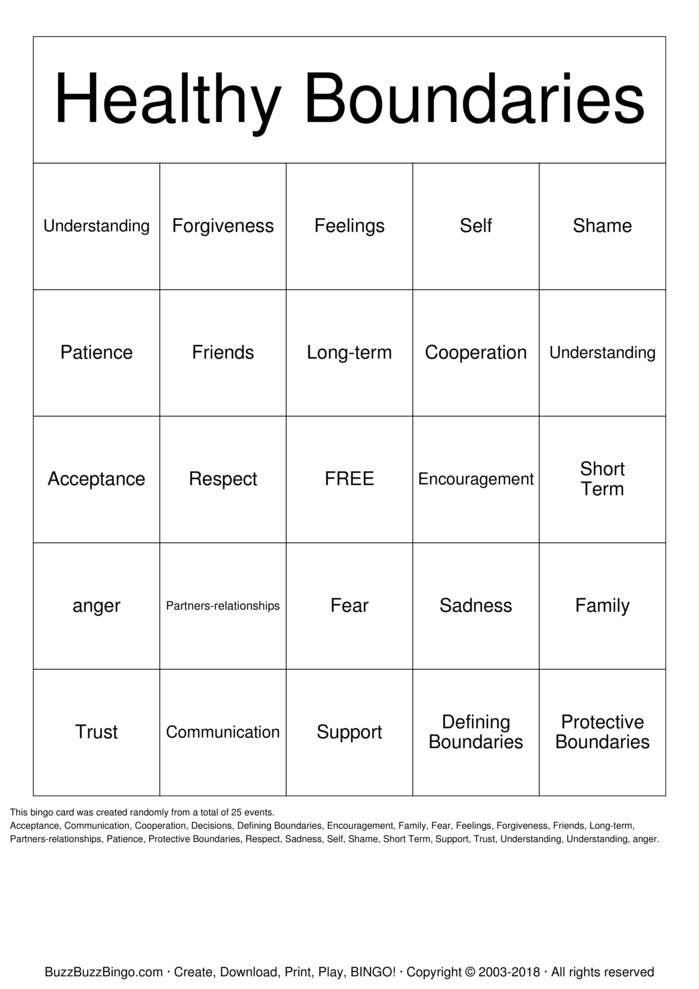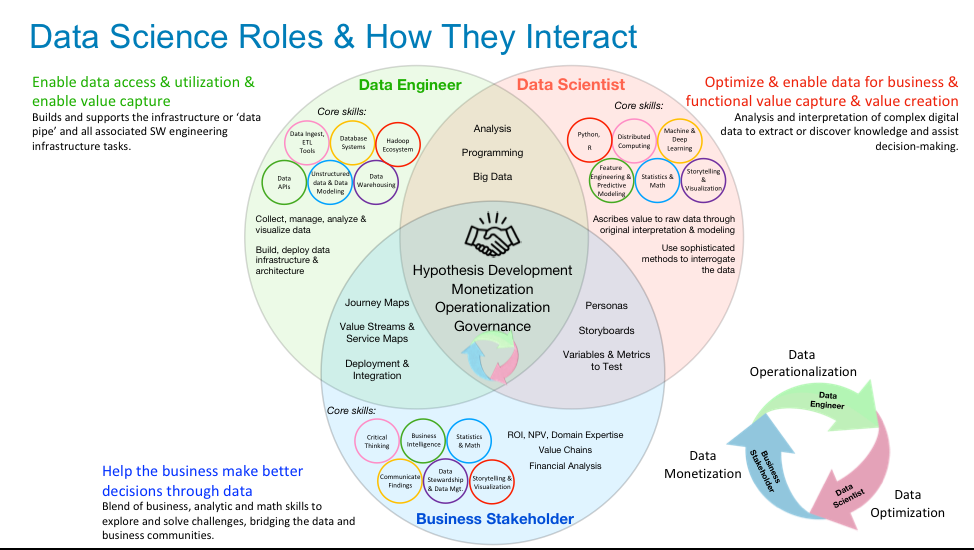Emotionally neglectful parents
Childhood Emotional Neglect - 37 Signs, Effects and How To Overcome
| What Is Childhood Emotional Neglect | Effects | Signs | How To Heal |
Childhood emotional neglect from parents is a type of emotional abuse that often goes unrecognized and unreported.
This form of child maltreatment is not always obvious because few people talk about it or know what signs to look for.
Being emotionally neglected can be a devastating experience.
Not only can this childhood trauma affect the child’s sense of self, capacity to trust, and their ability to build healthy relationships, but it can also affect a child’s health conditions.
The effects of psychological abuse can carry over to one’s adult life.
In the United States, child neglect includes physical, medical, educational, and emotional neglect1.
Parental neglect causing physical harm through the denial of proper care or the lack of supervision is a criminal act as defined by Federal Child Abuse Prevention and Treatment Act (CAPTA, 1996).
What is Childhood Emotional Neglect? (Definition Of Neglect)
Child emotional neglect (CEN) is the parent’s failure to meet their child’s emotional needs during the early years. It involves unresponsive, unavailable, and limited emotional interactions between that person and the child. Children’s emotional needs for affection, support, attention, or competence are ignored.
CEN also occurs when the parent or primary caregiver exposes the child to extreme domestic violence, allows the child to engage in maladaptive behaviors, refuses to seek treatment for the child’s emotional problems, or doesn’t provide them with adequate structure.
Maternal deprivation, such as being institutionalized or placed in an orphanage, is also a form of emotional neglect. Children of absent parents may also experience similar neglect.
Effects of Emotional Neglect in Childhood
Child emotional neglect is a form of psychological maltreatment. It is also one of the most prevalent types of childhood abuse.
Despite the lack of overt traumatic events, experiencing emotional neglect as a child can be just as damaging as abuse.
In fact, studies indicate that CEN might have the most wide-ranging negative mental health impact among all childhood maltreatment types. It is associated with adverse physical, psychological, and educational outcomes.
The short-term consequences of neglect include increased risk for childhood internalizing and externalizing behavior, as well as delays in cognitive and emotional development.
Amygdala is the part of the brain responsible for learning emotional significance. It affects arousal reaction to environmental stimuli2.
When a child experiences severe forms of CEN during early brain development, such as institutional rearing, the amygdala becomes bigger in volume and more reactive.
As a result, individuals raised by neglectful parents tend to have worse mental health outcomes and long-term effects.
A child’s perception of neglect is important.
When a child perceives they’re being neglected emotionally, they are twice as likely to develop psychiatric disorders by age 15, including the development of depression, bipolar disorder, anxiety, panic disorder, phobias, and posttraumatic stress disorder (PTSD).
Adolescents with their emotions neglected as a child are more likely to have poor academic performance, substance abuse, risky sexual activity, and suicide attempts.
Emotional neglect is often transgenerational3.
Parents who have experienced a lack of nurturing in childhood from their own parents tend to adopt similar parenting styles when raising their own children.
Unlike physical neglect or abuse, neglectful parenting doesn’t have outward signs such as bruises or injuries.
Symptoms of emotional neglect in a child are subtle. Despite individual differences, neglected people tend to show certain behavioral patterns.
In addition, abuse experiences are often accompanied by other types of abuse, such as physical abuse or sexual abuse, which tend to have more obvious signs.
17 Signs of emotionally neglectful parents
4- Speak with a cold and unfriendly tone
- Unresponsive to the child’s feelings
- Dismiss the child’s emotions
- Don’t talk to the child very much
- Spend little time with the child and make them feel they are unwanted
- Less positive feedback or praise
- Express less affection
- Show less positive social interactions
- Disengaged and uninvolved in the child’s life
- Lack of interest in children’s activities
- Persistently find fault with their child
- Ignore the child’s cues for help in problem-solving tasks
- Offer no encouragement when the child fails a task
- Verbally aggressive discipline
- Addicted to substance misuse
- Show depressive symptoms
- Suffered from emotional neglect themselves in their own childhood
20 Common Signs of Child Emotional Neglect in children
5,6CEN signs include:
- Insecure-avoidant attachment pattern, disorganized attachment, and, in extreme cases, attachment disorder
- Show passive, withdrawn, and aggressive behavior patterns with their parents
- Suffer from child development delay, failure to thrive
- Negativity during parent-child interactions and anger towards the parent
- Significantly less positive social interaction
- Delay in language development
- During free play, anger toward the parent
- Avoid interactions with other children
- Poor peer relationships
- Disruptive and impulsive behavior, including aggression, hostility, and oppositional
- Lower cognitive functioning
- Low self-esteem and self-compassion
- Shame, humiliation, self-blame, and feelings of worthlessness
- Attention problems
- Higher rates of dissociation
- More behavioral issues, including conduct disorder symptoms
- Less emotional knowledge, difficulty recognizing angry faces7
- Symptoms of depressive disorder8
- Symptoms of anxiety disorder
- In severe cases, the child develops symptoms resembling autism, such as stereotypical rocking and self-soothing
Note that whether a child is emotionally neglected needs to be evaluated by qualified specialists. If you suspect or observe signs of neglect, report to the authority as soon as possible.
If you suspect or observe signs of neglect, report to the authority as soon as possible.
Also see: Family Estrangement – Why Children Reject Their Parents & How To Mend
Also See: Phubbing – How Parents Contribute to Teenage Cell Phone Addiction
How To Overcome and Heal From Emotional Neglect In Childhood
Neglected children
Child maltreatment ACEs (Adverse Childhood Experiences) can have an adverse impact on one’s adult well-being and family life. A child’s emotional experiences can affect their future adult relationships.
Family therapy with trained mental health professionals can help both the neglectful mother, neglectful father, and neglected child.
Therapy can help parents understand the severe impact of their neglect. A good therapist can also teach the child proper coping mechanisms.
Through early intervention, behaviors that lead to neglect may be modified and corrected.
The symptoms of childhood neglect usually improve when neglected children are subsequently cared for by loving family members, especially before age two.
Neglected parents
Parents who had neglectful early life experiences themselves can also benefit from others’ emotional support. One study has shown that overcoming childhood emotional neglect can be achieved with parent aide counseling (lay counseling) and Parents Anonymous.
These effective treatment options have relatively high success rates.
Check Out: Emotionally Abusive Parents and Mentally Abusive Parents
Neglected adults
Research indicates one in five individuals grew up in a family environment where caregivers deprived them of love and attention without abuse9.
Neglected adults who have experienced emotional abandonment as a child are at elevated risk for internalizing distress and substance abuse.
Getting professional help to address the long-term effects of emotionally unavailable parents is especially important.
It is common for adults to avoid seeking help. They prefer to handle problems on their own.
However, overcoming childhood abuse is not a matter of willpower.
Even as adults, abused children can have a hard time coping with a traumatic past. With the help of an experienced mental health professional, you can speed up your healing process.
Also See: Parenting
References
-
1.
De Bellis MD. The Psychobiology of Neglect. Child Maltreat. Published online May 2005:150-172. doi:10.1177/1077559505275116
-
2.
Adolphs R, Tranel D, Damasio H, Damasio A. Fear and the human amygdala. J Neurosci. Published online September 1, 1995:5879-5891. doi:10.1523/jneurosci.15-09-05879.1995
-
3.
Champagne FA. Epigenetic mechanisms and the transgenerational effects of maternal care. Frontiers in Neuroendocrinology. Published online June 2008:386-397. doi:10.1016/j.yfrne.2008.03.003
-
4.
Strathearn L. Maternal Neglect: Oxytocin, Dopamine and the Neurobiology of Attachment.
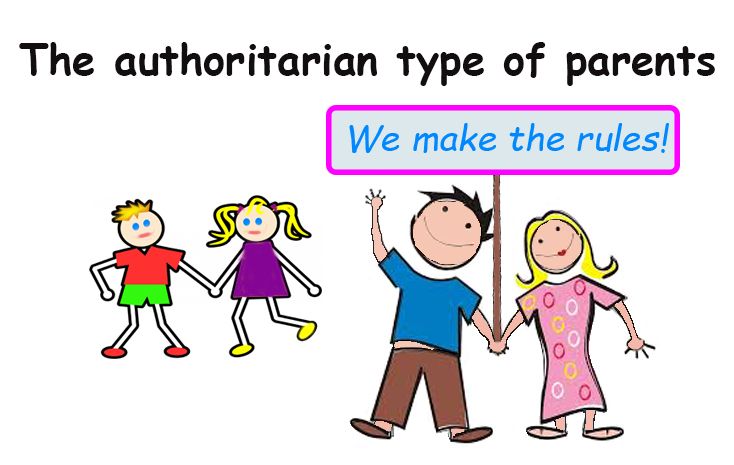 Journal of Neuroendocrinology. Published online October 18, 2011:1054-1065. doi:10.1111/j.1365-2826.2011.02228.x
Journal of Neuroendocrinology. Published online October 18, 2011:1054-1065. doi:10.1111/j.1365-2826.2011.02228.x -
5.
Ney PG, Fung T, Wickett AR. The worst combinations of child abuse and neglect. Child Abuse & Neglect. Published online September 1994:705-714. doi:10.1016/0145-2134(94)00037-9
-
6.
Hildyard KL, Wolfe DA. Child neglect: developmental issues and outcomes☆. Child Abuse & Neglect. Published online June 2002:679-695. doi:10.1016/s0145-2134(02)00341-1
-
7.
Tottenham N, Hare TA, Millner A, Gilhooly T, Zevin JD, Casey BJ. Elevated amygdala response to faces following early deprivation. Developmental Science. Published online February 18, 2011:190-204. doi:10.1111/j.1467-7687.2010.00971.x
-
8.
Hanson JL, Hariri AR, Williamson DE. Blunted Ventral Striatum Development in Adolescence Reflects Emotional Neglect and Predicts Depressive Symptoms. Biological Psychiatry.
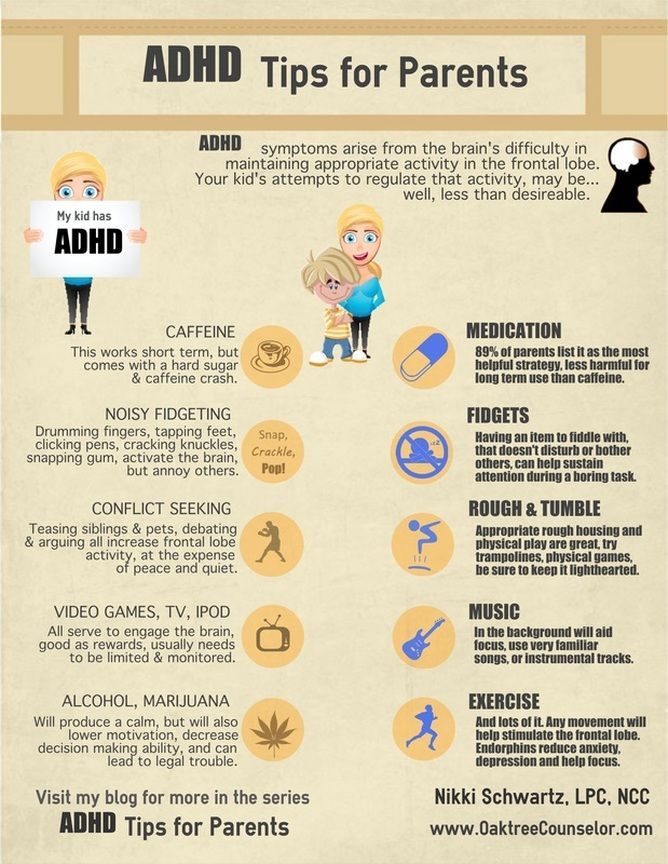 Published online November 2015:598-605. doi:10.1016/j.biopsych.2015.05.010
Published online November 2015:598-605. doi:10.1016/j.biopsych.2015.05.010 -
9.
Cohen JR, Menon SV, Shorey RC, Le VD, Temple JR. The distal consequences of physical and emotional neglect in emerging adults: A person-centered, multi-wave, longitudinal study. Child Abuse & Neglect . Published online January 2017:151-161. doi:10.1016/j.chiabu.2016.11.030
About Pamela Li
Pamela Li is an author, Founder, and Editor-in-Chief of Parenting For Brain. Her educational background is in Electrical Engineering (MS, Stanford University) and Business Management (MBA, Harvard University). Learn more
View all posts by Pamela Li | Website
8 Warning Signs of Emotional Neglect in a Family
The emotionally neglectful family
Source: eobrazy_pl/Adobe Stock Photos
As adults, most of us tend to minimize the impact our birth families, or what therapists call the “family of origin,” have on our daily choices and lives. But, the reality is that the family you were born into and that raised you still lingers in your adult brain, influencing feelings, reactions, and choices.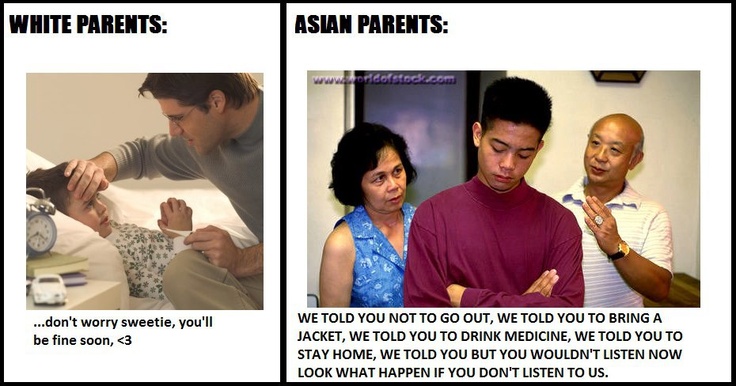
In 1953, D.W. Winnicott first introduced the concept of “the good enough mother” in a groundbreaking book called Playing and Reality. His words changed the field of psychology and mental health forever by linking the way you experience your connection with your parents in childhood to the way you are as an adult. His essential concept was that you don’t need a perfect parent to turn out okay. You only need to have a parent that’s “good enough.”
A 2019 research study by Susan Woodhouse found that a parent only has to get it right 50 percent of the time to be a “good enough” parent.
Childhood Emotional Neglect
Childhood emotional neglect happens when your parents sufficiently neglect your emotions and emotional needs. Meaning, they do not notice what you are feeling, ask about your feelings, connect with you on an emotional level, or validate your feelings enough.
Emotionally neglectful parents usually have no idea they neglect their children’s emotions. They are typically folks who tend to turn a blind eye to feelings in general, including their own, friends’, family’s, co-workers’, and children’s. They may mean well and care for and want to do their best for their kids. They probably have no idea what they are missing.
They are typically folks who tend to turn a blind eye to feelings in general, including their own, friends’, family’s, co-workers’, and children’s. They may mean well and care for and want to do their best for their kids. They probably have no idea what they are missing.
This can make many emotionally neglectful families challenging to spot. They are indeed “good enough” in the most visible ways. They may provide you with a home, food, clothing, and rides to soccer practice. But they do not have frank talks with you about problems you’re facing, soothe you enough when your friends hurt your feelings, or teach you how to notice, name, or manage your emotions.
The one failure of the emotionally neglectful family is emotional. There may be enough hugs. There may be enough money. There may be enough food and clothing. But this family does not manage to provide enough emotional awareness, validation, compassion, or emotional care to the children.
This is what makes emotionally neglectful families difficult to see or identify. Unlike emotional abuse or physical neglect, emotional failures are difficult to see.
Unlike emotional abuse or physical neglect, emotional failures are difficult to see.
How Childhood Emotional Neglect Plays Out in a Family
As a psychologist who works with adults who grew up with childhood emotional neglect, I have seen how it affects people’s relationships with their families of origin. It often results in adult children who sense that something is wrong with them but have no idea what that is and are also baffled by their feelings about their families.
8 Signs of Emotional Neglect to Watch For in Your Family
- Your family conversations tend to be on surface topics, meaning they are seldom about emotional, meaningful, painful, or negative things. This may even make it boring.
- You sometimes feel an unexplained resentment or anger toward your parents (which you may feel guilty about).
- You go to family events with hopes of enjoying yourself, but you often come away feeling empty or disappointed.
- Difficult or interpersonal problems in the family are generally ignored instead of addressed directly.

- It feels like your siblings are competing with each other, but you’re not sure for what.
- Affection in your family is expressed via action (doing things for people) and not so much by words or emotional expression.
- Emotion–perhaps only negative emotions, but maybe all–seems taboo in your family.
- You feel surprisingly lonely or left out when you’re with your family.
The members of an emotionally neglectful family do suffer. They suffer from what goes unsaid, unshared, undiscussed, unnoticed, and unvalidated. If your family is emotionally neglectful, and if you pay attention, you may notice some of the above signs whenever you spend time with them.
Like a beautiful cake baked without enough sugar, what may appear fine is not fine. The emotionally neglectful family suffers from an absence of enough of a key ingredient that may not be visible but matters greatly to enjoyment and quality. The feelings that should be sweetening the connections and warmth in the family are shoved underground.
This is why you may have felt bored, resentful, disappointed, stifled, or alone when it comes to your family. This is why it’s so important to name the problem of childhood emotional neglect and make a conscious decision to fight against it in your own life.
What You Can Do
You cannot fix your family, and you do not need to try. But you can start changing yourself. Choose an item from the list of eight above that applies to your family, and start behaving the opposite way in your own life.
Talk about meaningful things, fight against feeling guilty for your feelings, focus on self-care when with your family, talk about difficult problems, express your affection and warmth toward others in words and face your negative emotions. You don’t have to do it perfectly. You only need to do it enough.
Scores of good people have been in your shoes and walked your path before you, and many more are walking with you now. Last but not least, and above all, please know that you are not alone.
© Jonice Webb
To determine whether you might be living with the effects of childhood emotional neglect, you can take the free Emotional Neglect Questionnaire. You'll find the link in my bio.
Facebook/LinkedIn image: fizkes/Shutterstock
5 parental weaknesses that kill the future of our children
All parents make mistakes: someone makes them out of ignorance, someone with good intentions. "ABOUT!" shares with you an article by a well-known Canadian child-rearing specialist, Victoria Prudey, who told why our kids are bored at school, so impatient, easily disappointed, do not have real friends, and most importantly, what to do about it all?
Victoria Prudey, ergotherapist, parenting and development specialist
I am a Canadian occupational therapist with 10 years of experience working with children, parents and teachers. Over the years of my professional activity, I have observed in children a frightening trend towards a decrease in social, emotional and academic activity, as well as a sharp increase in the number of cases of learning disabilities, concentration and other disorders.
Today's children come to school emotionally unavailable to learn, and there are many factors in our lifestyle that contribute to this. As we know, the brain is plastic and malleable. Thanks to the environment, we can make the brain "stronger" or "weaker". I believe that, despite all our best intentions, we are, unfortunately, directing the development of our children in the wrong direction. And that's why.
Impact of technology
Using technology (TV, tablet, smartphone) as a free babysitter is not really free. Payback is not far off. We pay with our children's nervous system, their attention and their ability to delay gratification until later. Compared to virtual reality, everyday life is boring. When children come to class, they are confronted with human voices and adequate visual stimulation as opposed to the ubiquitous graphic explosions and special effects they are used to seeing on screens.
After constantly being in virtual reality, processing information in the classroom is becoming increasingly challenging for our children as their brains get used to the high levels of stimulation that video games provide.
The inability to process lower levels of stimulation impairs children's readiness to tackle academic challenges.
Technology is emotionally alienating our children from their families. The availability of parental emotions is an essential nutrient for a child's brain. Unfortunately, we are slowly depriving our children of this nutrient.
Children get whatever they want, when they want
"I'm hungry!" - "In a second I'll buy you something to eat", "I'm thirsty!" - "Here's a vending machine with drinks", "I'm bored!" - "Play with my phone!" The ability to delay gratification is one of the key factors for future success. We have the best intentions to make our children happy, but unfortunately we are only making them happy for the moment, and unhappy in the long run.
The ability to delay gratification means the ability to function under stress. Our children are gradually becoming less prepared to deal with even minor stressful situations, which eventually become huge obstacles to their success in life.

The inability to delay gratification often manifests itself in the classroom, in malls, restaurants and toy stores at the moment when the child hears "No" because parents have trained their child's brain to immediately get what he wants.
Children rule the world
Here's what I hear from parents all the time: "My son doesn't like vegetables", "She doesn't like to go to bed early", "He doesn't like breakfast", "She doesn't like toys, but she's great with with his iPad", "He doesn't want to dress himself", "She is too lazy to eat by herself". Since when do children tell their parents how to raise them? If you leave it to them, then all they will do is eat macaroni and cheese and cream puffs, watch TV, play on their tablets, and go to bed at 12 o'clock at night. What benefit do we bring to them by giving them what they are want if we know that is not good for them? Without proper nutrition and a healthy night's sleep, our children will come to school irritable, restless and inattentive.
In addition, we convey the wrong idea to them. They learn that they can do what they want and not do what they don't want. There is no "must do" concept. Unfortunately, in order to achieve our goals in life, we must do what is necessary, and this is not always what we like to do.
For example, if a child wants to be an excellent student, he must study hard. If he wants to be a successful footballer, he must train every day. Our children know very well what they want, but it is very difficult for them to do what is necessary to achieve this goal. The result is unrealistic goals and disappointment.
Endless fun
We created an artificial world for our children. There are no boring moments. When the child calms down, we run to entertain him again, because otherwise we feel that we are not fulfilling our duty to raise children.
We live in two different worlds: they have their own world of "fun", and we have our own world of "work".
Why do children no longer help us in the kitchen or with laundry? Why don't they collect and tidy up their toys? This is monotonous work that trains the brain, develops efficiency and the ability to function during periods of "boredom" - the same "muscles" are required, ultimately, for schooling.
When children come to school and need to write something down, they say, “I can't. It's too hard. And it's too boring." Why? Because endless fun does not develop performance skills. Work develops them.
Limited social interaction
We are all busy, so we give our kids gadgets to keep them busy too. Children used to play outside, where they developed their social skills in a haphazard natural environment.
Unfortunately, technology has replaced outdoor time. In addition, technology has also made parents less accessible for social interaction with children.
It is clear that our children are falling further and further behind.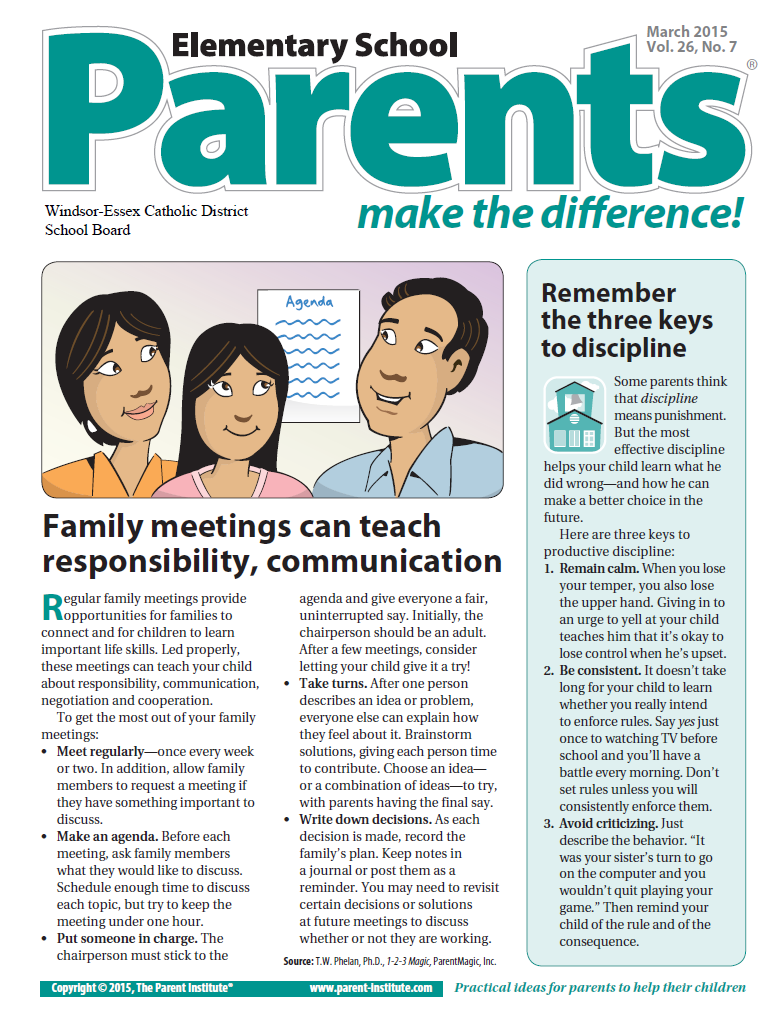 .. after all, the digital babysitter is not equipped to help children develop social skills. For further success in life, social skills are essential!
.. after all, the digital babysitter is not equipped to help children develop social skills. For further success in life, social skills are essential!
The brain, like muscles, learns and trains. If you want your child to know how to ride a bike, you teach him how to ride a bike. If you want your child to know how to wait, you must teach him to be patient. If you want your child to be able to communicate, you must teach him social skills. The same applies to all other skills. There is no difference!
What to do?
You can change your child's life by training his brain so that your child will be successful in social, emotional and academic activities.
Limit access to technology
In addition, reconnect with your children emotionally: surprise them with flowers, share a smile, tickle them, leave a cute note in their backpack or under their pillow, take them to school for lunch, dance together, crawl together, fight pillows. Have family dinners, play board games in the evenings (see the list of my favorite board games in the previous post), ride a bike, walk outdoors with a flashlight in the evening.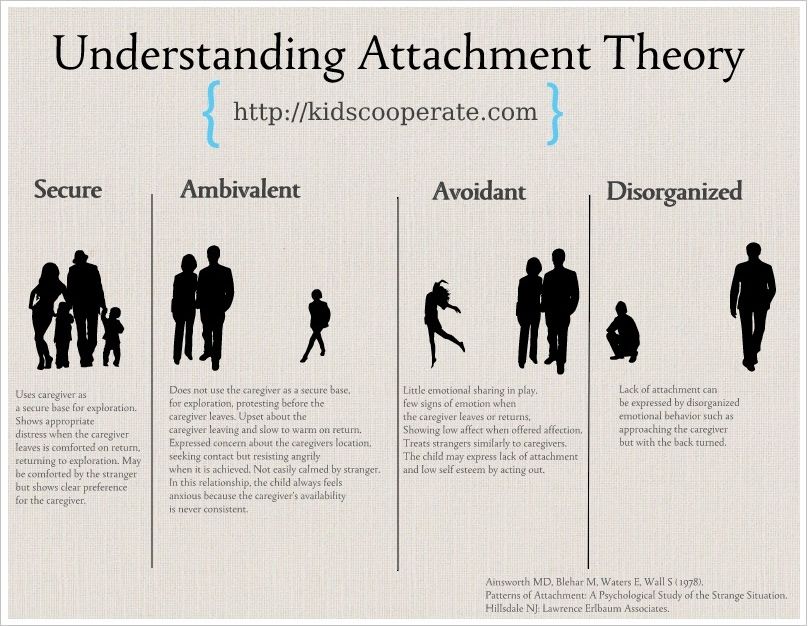
Practice the ability to delay gratification
Let them wait! Explain to your child that boredom is normal. The most creative ideas are often born in times of boredom. Gradually increase the waiting time between "I want" and "I get". Avoid using gadgets in cars and restaurants - instead, teach them to wait by talking and playing. Limit the number of regular snacks.
Don't be afraid to frame
Children need limits to grow up happy and healthy!
- Schedule meals, sleep, gadgets.
- Think about what is GOOD for them, not about what they WANT/DO NOT WANT. Later they will thank you for it. Raising children is hard work. You have to be creative to get them to do what is good for them, because most of the time it will be the exact opposite of what they want.
- Children should eat breakfast and nutritious food. They need to spend time outdoors and go to bed at a certain time in order to come to school the next day ready to learn!
- Turn what they don't like/want to do into fun, into an emotionally stimulating game.

Teach your child to do monotonous work
It is this kind of activity, if done from an early age, that is the basis for future "performance." Let the baby fold clothes, put away toys, hang up clothes, unpack food, set the table, cook dinner, wash dishes, make the bed. Be creative. Add a play element to the action to evoke positive associations in your brain.
Teach social skills
Teach them to take turns, share, lose/win, compromise, praise others, say please and thank you.
Based on my experience as an occupational therapist, I can say that children change when their parents change their point of view on parenting. Help kids succeed in life by educating and exercising their brain ASAP!
See also:
Stress inhibits development: how to help the child adapt to school
Allow your children to miss
5 Technicians who will help to cope with children's envy
Daria Dudkin
Source: Yourot.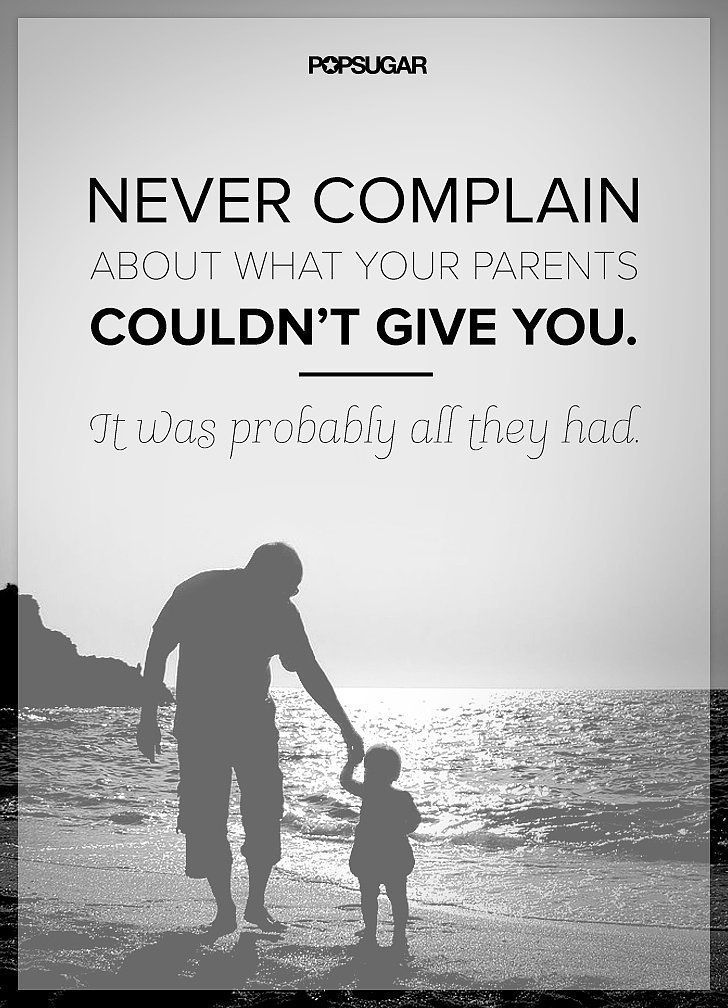 com
com
Photo: Photo: Martin Novak/Dragon Images/Africa Studio/Dmytro Zinkevych/Shutterstock.com
SocietyPsychologyHealthHomeVictoria Prudey
How to talk to your child so that he hears and understands. Psychologist's advice
It seems to be easier to negotiate with a small child than with a teenager. But sometimes you try to explain something to him, to explain it, but he either doesn’t hear, or doesn’t understand, or starts arguing out of harm. On purpose, right? Or is it the parents doing something wrong? How to conduct a conversation, even when you need to discuss something not very pleasant, what mistakes are important to avoid, says psychologist Svetlana Filyayeva.
Svetlana Filyayeva, psychologist, art therapist
Here are the simplest and most practical techniques that allow you to negotiate with a child, without swearing, not pushing, but solving everything using more effective ways of communication
- Do not start a conversation with the phrase: “We need to discuss something with you.
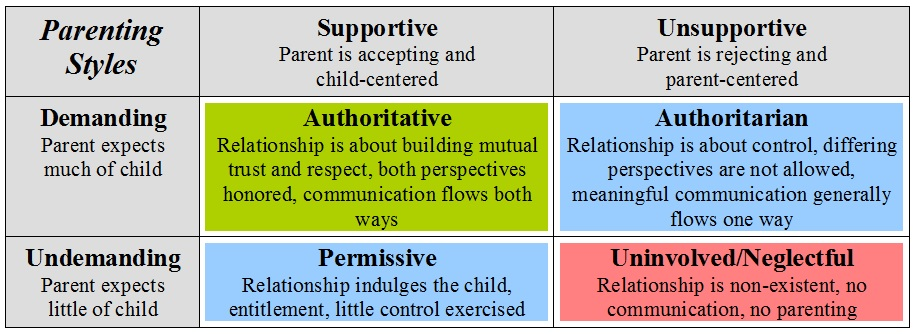 Let's sit down and talk."
Let's sit down and talk."
This immediately causes a defensive reaction, alertness, anxiety, aggressive behavior or whining. The child begins to prepare for the fact that there is nothing good ahead, now he will be scolded.
When you need to discuss some not very pleasant topic (misconduct, bad behavior), add an important element to the conversation. There are already 2 participants - mom (dad) and a child. Need add a third factor - and it should be uniting you, pleasant . It can be a walk, any interesting joint activity: draw, spit, play a computer game together, assemble a constructor, puzzle, walk the dog, whatever you like. When there is such an activity, and it is pleasant for both, the child is relaxed - then you can start a serious conversation. Not attacking, but offering as a topic for discussion: “What do you say? What are your thoughts on this topic?”, “I would like to say…”
- Try to be brief.
 Clearly state your point of view in the conflict.
Clearly state your point of view in the conflict.
Do not repeat yourself, do not have a long discussion. Even if an adult does not receive a proper response from a child, you should not drag out the conversation. It is much more useful to return to it next time - in a day , at some appropriate moment.
From my experience, I can say that parents tend to discuss problems for a long time, 30-40 minutes each, in order to find out everything, to achieve an apology, and awareness of the misconduct. Here are the favorite questions: “Do you understand? Do you promise not to do it again?" - in general, are often useless. As a rule, you already have an upset, angry child in front of you. If you see that he "fell out" of contact, it is better to return to the conversation later, no need to insist.
At my consultations, parents often talk about how a child apologized after a misconduct, but it was clear that without feeling, only to be left behind.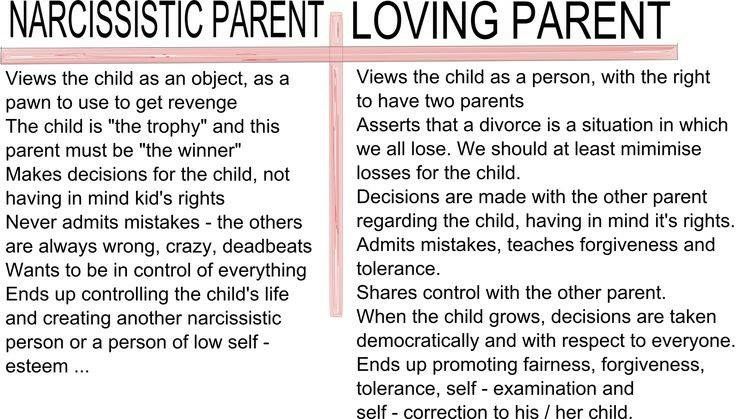 Yes, he can ask for forgiveness or agree to end a tiresome conversation. Or he will refuse and argue in order to insist on his own. It is better to stop, although this is difficult to do. You can say, “Okay. I see that you are upset, we are both tired, we are starting to get angry with each other. Let's talk later again."
Yes, he can ask for forgiveness or agree to end a tiresome conversation. Or he will refuse and argue in order to insist on his own. It is better to stop, although this is difficult to do. You can say, “Okay. I see that you are upset, we are both tired, we are starting to get angry with each other. Let's talk later again."
When we start talking about an unpleasant topic, certain physiological processes occur, the stress hormone cortisol is released. The adult himself begins to get angry, wind up, emotional stress increases. The child has the same situation. Both can begin to accuse, call names, say nasty things.
Case study
A glass ball broke in a girl's nursery. All this happened in the evening, we had to quickly “evacuate” the children, the dog, remove small fragments, and my mother was very angry: where did this ball come from?! The girl was very upset and refused to say where she got it.
The three of us discussed this situation with my mother at a consultation: everyone was unhappy that evening, everyone had an unpleasant aftertaste.
We talked about the feelings of the girl. She said that she was angry with herself that she had broken, and offended at her mother, because she was angry because of such a trifle. I said: “I see that you are upset. Do you want to apologize to your mom?" She thought and apologized, but added that she would not say anything about the ball anyway. I continued: “Now you don’t want to say where you got the balloon. If mom doesn’t mind, we can agree that you have the right not to always immediately answer such questions or say: “I want to think, I’m not ready to talk about it.” Mom agreed that it was possible to do so.
What happened next? The girl immediately told where the ill-fated ball came from (it turned out that it was just a part of some big toy). This is how important it was for her to understand that she was not required to respond immediately: as soon as she was recognized as having the right to choose, the problem was exhausted.
- Take your time and pause when talking to your child.
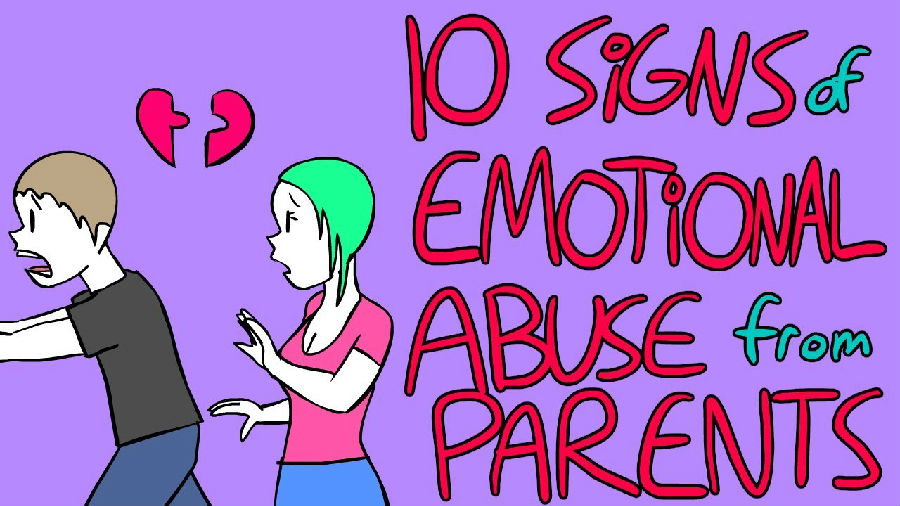
Give him the opportunity to think, choose his option, choose the time when he can continue the dialogue.
Here is a familiar situation: a child comes home from kindergarten or school upset and agitated. Someone offended him, something went wrong: the teacher screamed because she forgot her notebook at home. Or had a fight with a friend who lost his toy. The child begins to tell all this violently and emotionally. And parents, of course, terribly want to console him or say something moralizing, “I told you! Why did he give Dana a soldier without permission? Or we want to quickly give practical advice.
Imagine : it is very likely that the child does not need this from you now ! He may be offended by the advice and say that this is nonsense. Your moralizing, when he is already upset, turns out to be out of place. And even an attempt to console, - the phrase "Don't pay attention" when tears flow from him - only makes things worse.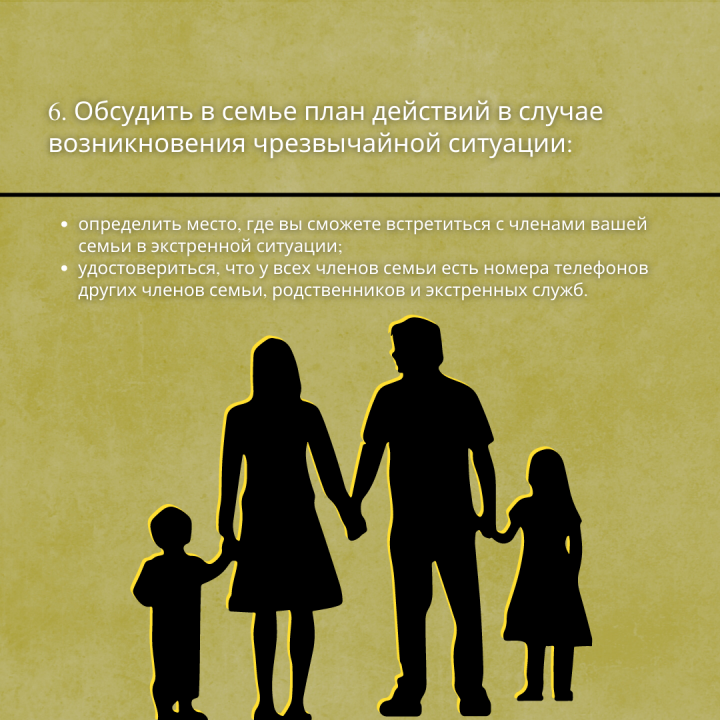
You just need to listen to him, let him speak until the end . Of course, this should be done not like a stone statue, but to say: “What happened next? And you heard that…” Can hug - emotional bodily contact is very important . Give tea with cookies.
It won't take long. But he needs to devote all attention, put aside all affairs.
- Say "I understand you."
- Ask: “What do you think? Why did this happen?"
- Name the child's feelings: you are offended, you are angry.
- You can specify: "What would you like me to do now?".
When you provide warm, emotional contact and the child speaks out, then the tension goes away.
And then he starts to analyze himself, and often he himself finds a solution from the situation or draws some conclusion from it (I will not be friends with the frivolous Danya, tomorrow I will take a notebook with homework and first of all I will show it to the teacher). Then, perhaps, nothing will be required of you anymore: the child will calm down and decide what to do. If necessary, the situation can be discussed later.
Then, perhaps, nothing will be required of you anymore: the child will calm down and decide what to do. If necessary, the situation can be discussed later.
Common mistakes of parents
- Talking to a child when he has a tantrum . Don't do that - that's the rule. He doesn't hear. When a person has a tantrum, the limbic system is involved - that is, the emotional part of the brain, so the child, purely due to neurophysiology, cannot respond to words, think, and respond adequately. Adrenaline and cortisol are released. No matter how much you want to find out everything quickly, you have to wait until he calms down. After a tantrum, there may be a breakdown, children often fall asleep immediately: can you imagine how tiring it is?
- To sort things out before going to bed when the child is tired. Before going to bed, it turns out that he forgot to learn poetry, make crafts, pack a backpack - in the evening, when everyone is exhausted, there is no point in arguing and insisting.
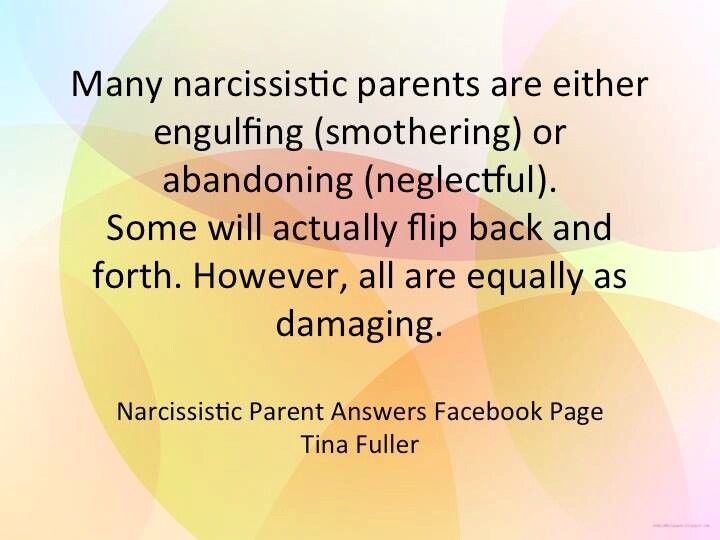 The next day, during the weekend, talk with a clear head in a calm state and figure out what to do with the situation if it does not change. (If you are worried about unwanted repetitive behavior, no methods work, it is better to seek the advice of a psychologist: perhaps you need a more careful study of the situation, individual advice).
The next day, during the weekend, talk with a clear head in a calm state and figure out what to do with the situation if it does not change. (If you are worried about unwanted repetitive behavior, no methods work, it is better to seek the advice of a psychologist: perhaps you need a more careful study of the situation, individual advice). - Scold when the child is hungry . Childhood is an age when mood can be very dependent on physical condition. And if the child wants to eat, the reactions to your words will be something like this - whims, whining, anger. You will not see an attentive interlocutor who will listen to you and take into account your advice.
- Repeat the phrases: “You are as always” , “You are as usual”, “What else can we expect from you?”, “I knew it” - such statements cause frustration in the child, reduce self-esteem, label: you are a loser , unsuccessful, inattentive, you did not succeed and will not succeed, you will never change.
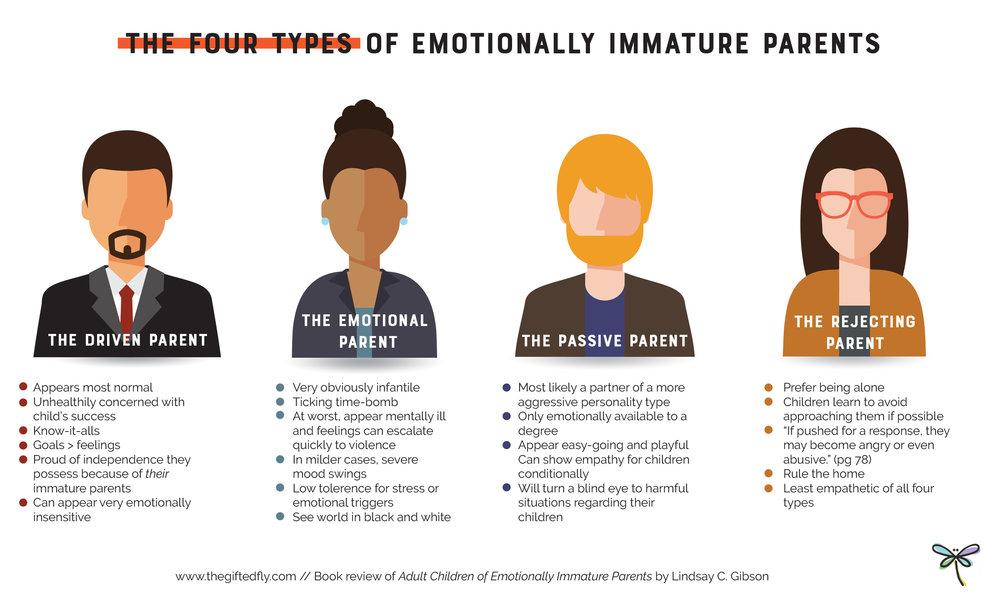
Such messages do not work as parents think: on the contrary, they reinforce unwanted behavior. After all, they tell the child what he is: “lazy”, “forgetful”, “sloppy”. So he remembers: "Well, it's hopeless, I'm like that, I'm clumsy." Then an adult grows out of him, who considers himself clumsy at the table (and therefore cannot go on dates), who has long and well learned that he is unassembled and forgetful and therefore cannot rely on himself in anything. Avoid generalizations.
What books will help parents?
- Ann-Claire Kleindinst “Let's make a deal. Tips in pictures. How to grow up with a child ”: there are a lot of different tips just for those cases when the child is in an emotionally unstable state.
- Cathy Creswell, Lucy Willets The Calm Ones. How to help children cope with fears and anxiety. Overcoming emotional problems alone is difficult, especially when you are small.


